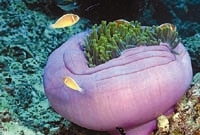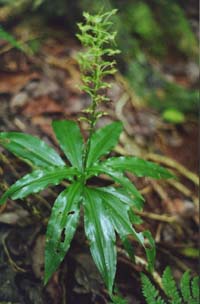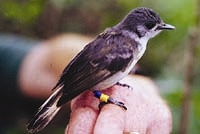







| PROGRAMMES | PROE | PUBLICATIONS, LIBRARY and IRC | SITE MAP | SPREP FORUMS | WEBMAIL - Global / Local | CONTACT | HOME
| Search |
Home > Programme > Island Ecosystem
1. Island Ecosystems
Goal:
Pacific islands countries and territories able to manage island resources and ocean ecosystems in a sustainable manner and that support life and livelihoods.
Programme rationale
Programme focus
- 1.1 Terrestrial ecosystems management
- 1.2 Coastal and marine ecosystems
- 1.3 Species of special interest
- 1.4 People and institutions
Programme rationale
The Islands Ecosystems programme focuses on developing the capacities of the peoples of the islands to equip them to sustainably manage and conserve the terrestrial, coastal and marine ecosystems of Pacific islands. The Programme also focuses efforts to protect priority threatened species, and to protect PICTs from invasive alien species and living modified organisms (LMOs).
SPREP’s core business under the Islands Ecosystems programme is to address the issues of ecosystem conservation, the sustainable management of natural resources and the protection of priority threatened species, from the threats of human-induced impacts, invasive species and living modified organisms. These issues require action at the local, national, regional and international levels.
SPREP’s future direction in the Islands Ecosystems Programme reflects a fundamental commitment to sustaining the livelihoods of Islands people today and tomorrow by supporting ecosystem management and species conservation.
The programme approach re-positions the Secretariat to deal more effectively
with natural resources conservation within four broad focus areas. These
are terrestrial island ecosystems, coastal and marine ecosystems, species
of special interest and people and institutions. It provides clearly
defined and linked objectives, outcomes and short-term, time-bound outputs.

The stronger linkages to community and economic livelihoods are reflected in the prominence given to the sustainable use concept in resource management, the conservation of ecosystems and the protection of species. There will be greater involvement of the Secretariat in the provision of resource management advice, information and capacity building, to support the development of community-based income generating enterprises based on sustainable resource use.
For most PICTs, the protection of critical biodiversity and the sustainable management of resources will inevitably involve local communities. Lessons from the past 50 years of protected area management in the region reaffirm this approach. Building on this experience, future ways for delivering community-targeted services will focus on capacity building and other catalytic measures where the regional approach is more cost effective. Technical and legal advice, and direct interventions will be provided in specific areas including the development of income-generating enterprises, resource management planning and ecosystem, species and threat management and monitoring. Interventions will be in response to specific country requests, involving careful participatory planning and consultation, and for the parties to the Convention on Biological Diversity (CBD), consistent with the priorities of the National Biodiversity Strategic Action Plans.
1.1 Terrestrial ecosystems management
Throughout the Pacific islands, important terrestrial ecosystems require on-going support to secure representative areas under robust conservation arrangements, and to promote sustainable use of natural resources by local communities and national governments. National efforts, and subregional or regional collaborative initiatives targeting the conservation and sustainable use of terrestrial ecosystems will be facilitated over the medium to long term. Linkages to other key regional arrangements will be fostered and will serve as key collaboration mechanisms to support this Programme Component. Two main Programme Outputs under this Component include:
1.1.1 Key terrestrial ecosystems conserved
1.1.2 Increased use of sustainable approaches in the management of natural resources
1.2 Coastal and marine ecosystems
As the dominant ecosystems of most SPREP members, coastal and marine environments will be the focus of considerable attention throughout the life of the plan. As a principal support for life and livelihoods throughout the region, community-based initiatives will continue to be the basis for much of SPREP's Programme in coastal and marine ecosystems. Understanding social and economic driving factors in community decision making in relation to resource use and conservation, and empowering local communities through co-management of projects will be critical elements of the Programme.
1.3. Species of special interest
 The
Pacific islands have a high proportion of species that are threatened
with extinction, including 14% of the region’s bird species
– representing 24% of the world’s globally threatened
species. Loss of species not only increases the vulnerability of island
ecosystems to environmental disturbances but also impoverishes economies
and cultures that depend on them for food, medicine and in some cases,
spiritual values. The major threats to Pacific native species are
invasive species, habitat loss or modification and over-harvesting.
This focus area aims to protect the region’s biodiversity against
the threat of invasive species and living modified organisms. It also
aims to ensure the maintenance of viable wild populations of species
of special significance by identifying and addressing their key threatening
processes.
The
Pacific islands have a high proportion of species that are threatened
with extinction, including 14% of the region’s bird species
– representing 24% of the world’s globally threatened
species. Loss of species not only increases the vulnerability of island
ecosystems to environmental disturbances but also impoverishes economies
and cultures that depend on them for food, medicine and in some cases,
spiritual values. The major threats to Pacific native species are
invasive species, habitat loss or modification and over-harvesting.
This focus area aims to protect the region’s biodiversity against
the threat of invasive species and living modified organisms. It also
aims to ensure the maintenance of viable wild populations of species
of special significance by identifying and addressing their key threatening
processes.
1.4 People and institutions
People and institutions, from the regional to the local community level, are critical to the success of every element of this strategic plan. Through mutually beneficial partnerships, with other multinational organisations, national institutions and government agencies, non-government organisations, community groups and the private sector, the potential to achieve all programme goals will be enhanced.
SPREP provides assistance to PICTs through a number of general environmental
management support mechanisms that cut across all technical areas. However,
there are a number of very specific issues that stand alone and require
focused action leading to the development of essential capacities for
PICTs. These include the ability to PICTs to deal with national environmental
legal frameworks, developing knowledge and information capacity, environmental
education and awareness, and building capacity within countries/for
developing human resources and training.
